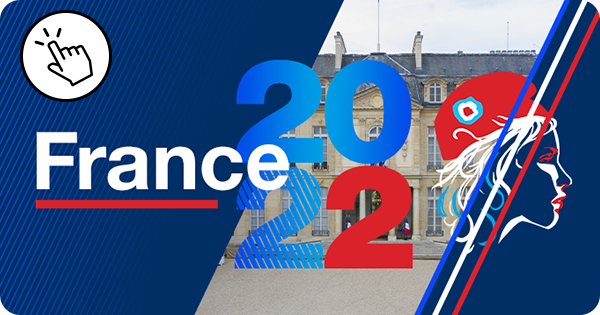Teenage student Assia Rezagui will be casting her very first ballot in next month’s presidential election. Having grown up in a family steeped in politics, she tells FRANCE 24 why voting is both a precious right and a civic duty.
Pollsters have warned that French youths may shun the April election in record numbers – but 19-year-old Assia Rezagui won’t be among them.
A native of Fréjus, in southeastern France, the law student has had a keen interest in politics since her early teens. She was already a card-carrying member of the Socialist Party at age 15. “I’ve always been immersed in politics,” she says. “My five siblings never missed a vote and I can’t imagine doing otherwise. For me it goes without saying.”
When her elder sister ran for office under the Socialist banner in the 2017 parliamentary elections, the young Rezagui naturally helped out. Since then, she has distanced herself from the ailing left-wing party, but her passion for politics has remained intact.
‘Form my own opinion in a non-partisan way’
In the run-up to the presidential election, Rezagui signed up for voluntary work with the association Cerfia, whose stated mission is to pass on verified information about the campaign and world affairs to French youths. Her job is to comb the press and promote content she deems of interest to high-school and university students, via the association’s Twitter account.
It’s a way to both foster democratic debate and inform her vote, she explains. “By reading and sharing content about the election, I get to know each candidate better and shape my own opinion in a non-partisan way.”

Having long backed Benoît Hamon, the former Socialist nominee who quit politics last year, she turned at first to Green candidate Yannick Jadot before switching to Christiane Taubira, the left-wing icon who belatedly joined the campaign in January. Now that Taubira has failed to collect the required 500 signatures from elected officials, Rezagui has fallen back on the incumbent, Emmanuel Macron.
“Since the start of the war in Ukraine, I feel he has risen to the occasion,” she explains. “He has stepped into the role of commander-in-chief, it’s important in these troubled times.”
On top of her role mediating political debates on social media, Rezagui likes to discuss the election campaign with her friends. “We each have very different opinions, some backing (conservative candidate) Valérie Pécresse, others (leftist) Jean-Luc Mélenchon,” she says. “But there is no friction, we respect each other’s views. And when things get heated, there’s always someone to crack a joke.”
‘No right to complain’
There’s one thing, however, the young student is miffed about: the high rate of abstention among her age group.
“I also have lots of friends who don’t want to vote, because they think politicians are all the same, a bunch of liars,” she says. “I try to encourage them to vote, even if it means casting a blank vote in protest.”
Rezagui believes voting is not just a right, but a civic duty too – which all French citizens should carry out.
“Those who fail to vote have no right to criticise or complain,” she says, adding that young women have a special duty to exercise their hard-earned right. “When I hear girls around me saying they won’t vote because they don’t like any of the candidates, it pisses me off! Women fought for the right to vote, we mustn’t forget it.”
This year’s lacklustre campaign has left the first-time voter with at least one regret – an uncomfortable feeling that the outcome of the election is a foregone conclusion, with polls giving Macron a comfortable lead over his rivals. “Even though we should be wary of trusting the polls too much, I do get the impression that the election is a done deal, with hardly any suspense,” she laments.
Nonetheless, Rezagui is determined to make the most of her first presidential election. She plans to travel to Paris on the night of the second round, on April 24, to celebrate with other Cerfia volunteers, whom she is yet to meet in person. Whatever the outcome of the election, she will at least have played her part.
This article has been translated from the original in French.
This is the third instalment in a FRANCE 24 series on first-time voters ahead of the 2022 French presidential election. Click here for episodes one and two.







